Facebook
Youtube
Instagram
The Institute of the Incarnate Word was the first branch of the Religious Family of the Incarnate Word to be founded by Fr. Carlos Miguel Buela in 1984. The Institute which draws its spirituality from the mystery of the Incarnation, was founded on none other than the Solemnity of the Annunication, March 25th, 1984 in San Rafael, Argentina. A few years later Fr. Buela would also found a female branch (Servants of the Lord and the Virgin of Matará, SSVM), and a secular Third Order.
I would say that Christ and His Church expect from us nothing more, and nothing less, than being "other Christs". That we might stand out in our imitation of the Incarnate Word.
Fr. Gustavo Nieto, IVE

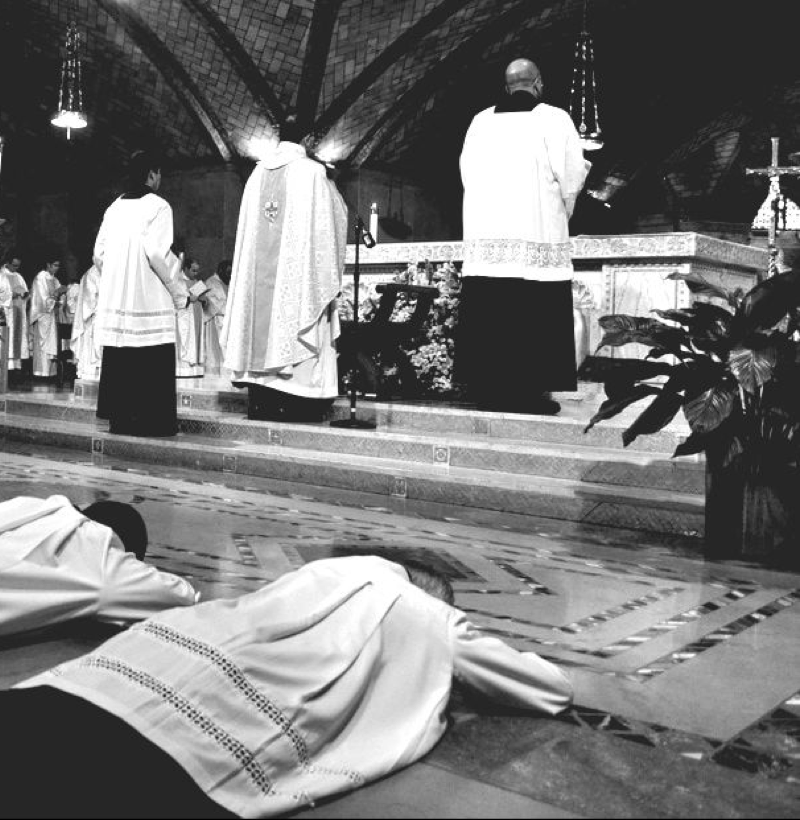
Our founder wanted our Institute to be named “of the Incarnate Word”, in order to honor the greatest event of history, an event which cannot be surpassed by any other: the Incarnation of the Son of God. By means of the profession of the vows of poverty, chastity and obedience, we want to imitate and follow more closely the Incarnate Word in his chastity, poverty and obedience.
In addition, we profess a fourth vow of Marian slavery, according to the spirit of St. Louis-Marie Grignion de Montfort. By means of this vow, we consecrate our whole lives to the Blessed Virgin Mary. As religious of the Incarnate Word, we want to be anchored in the mystery of the Incarnation which, as our spiritual father, St. John Paul II has said, “is the first and fundamental mystery of Jesus Christ.”
From this mystery, we want to undertake “to reestablish all things in Christ” (Eph 1:10), seeking to be as another Incarnation of the Word in order to make Him incarnate in all that is human. We are aware that, as St. Irenaeus teaches, “that which is not assumed is not redeemed”. Thus, nothing that is authentically human is foreign to us, because the life of grace that Jesus Christ came to bring to the world must be brought to everything and everyone.
This gives rise to our specific and singular end which is the evangelization of the culture, that is, to work “through the power of the Gospel, to transform: mankind’s criteria of judgment, determining values, points of interest, lines of thought, sources of inspiration, and models of life” ( Evangelii Nuntiandi, 19). Therefore, the charism of the Institute of the Incarnate Word is the grace to know how to work concretely so as to extend the presence of Christ in families, education, the mass media, the scholarly, and in all other legitimate manifestations of human life. “We believe that one of the most important ways to attain the Institute’s purpose is through work focused on key areas of culture, namely: families, education (especially in seminaries, universities, and colleges), the mass media, and thinkers or intellectuals” ( IVE Consitutions, 29).

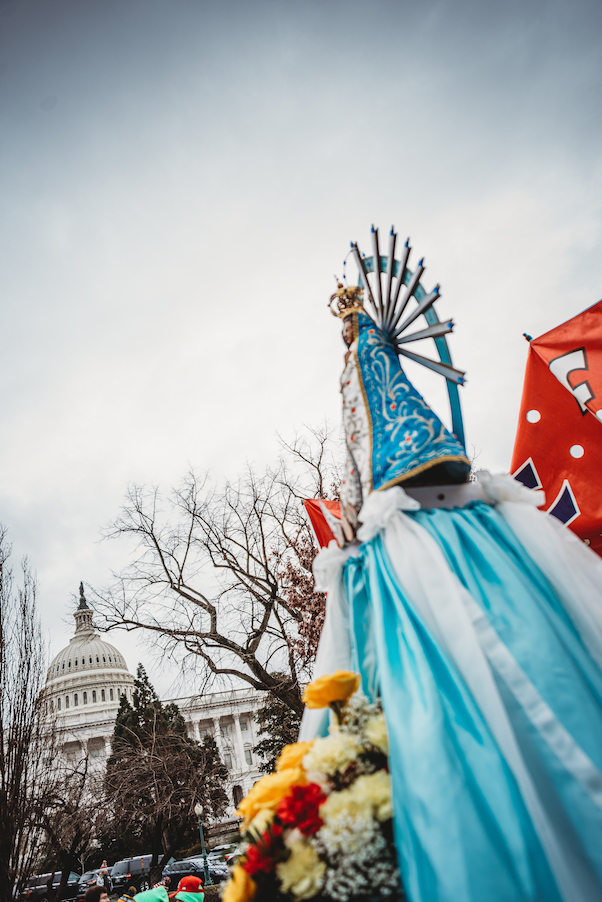
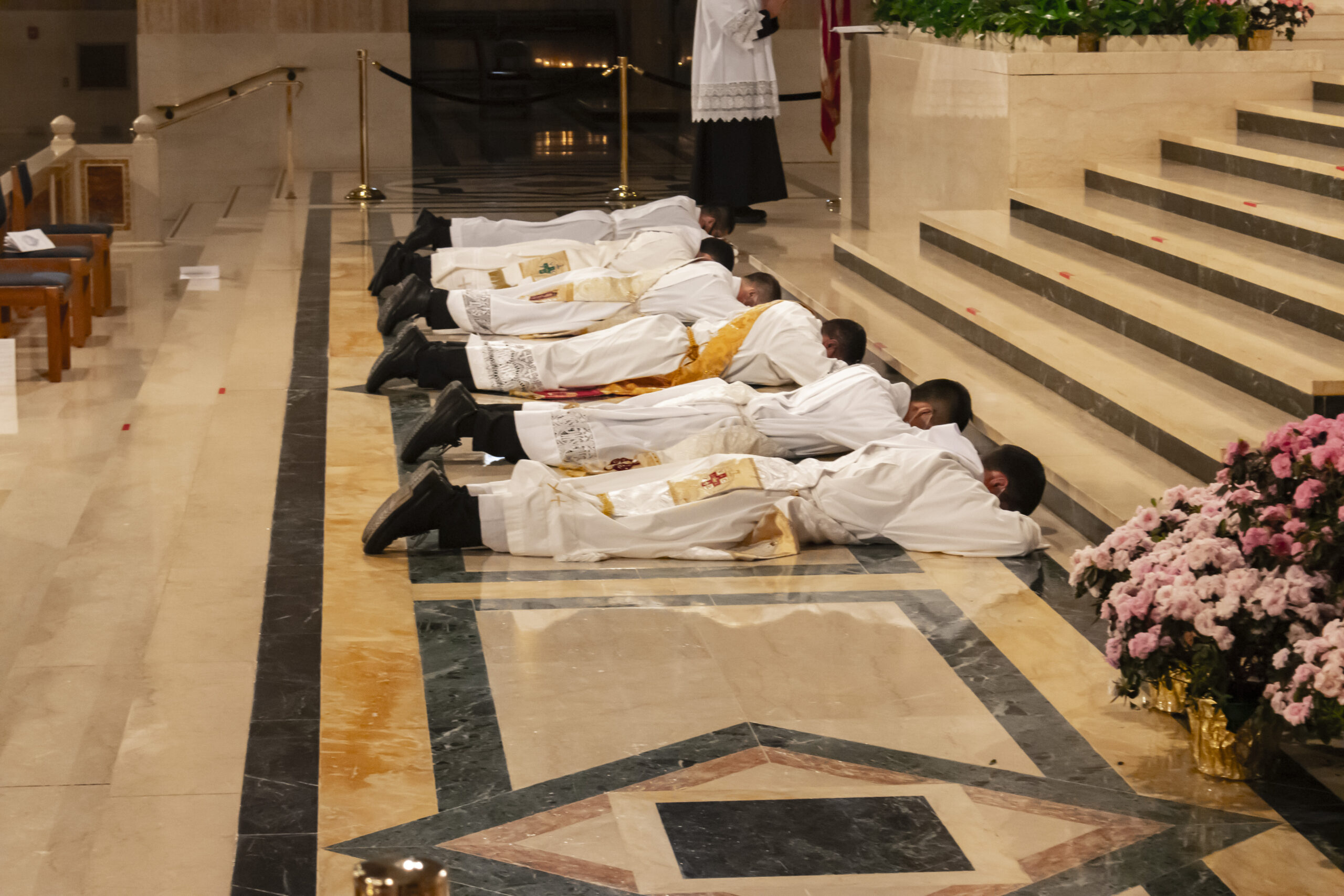
In order to always seek the greater glory of God and the universal good, we prefer to send missionaries where there is a greater need, either because of the lack of missionaries or because the faithful are in urgent need of them (cf. Constitutions, 186). Basically, we want to go to those missions where no one else wants to go. We firmly believe that the silent sacrifice of those who give their lives for Christ, going where no other man wishes to go, will never go unrewarded.
These sacrifices are an enormous source of blessing for the entire Institute and for the Universal Church. From this mystery, we want to undertake “to reestablish all things in Christ” (Eph 1:10), seeking to be as another Incarnation of the Word in order to make Him incarnate in all that is human. We are aware that, as St. Irenaeus teaches, “that which is not assumed is not redeemed”. Thus, nothing that is authentically human is foreign to us, because the life of grace that Jesus Christ came to bring to the world must be brought to everything and everyone.
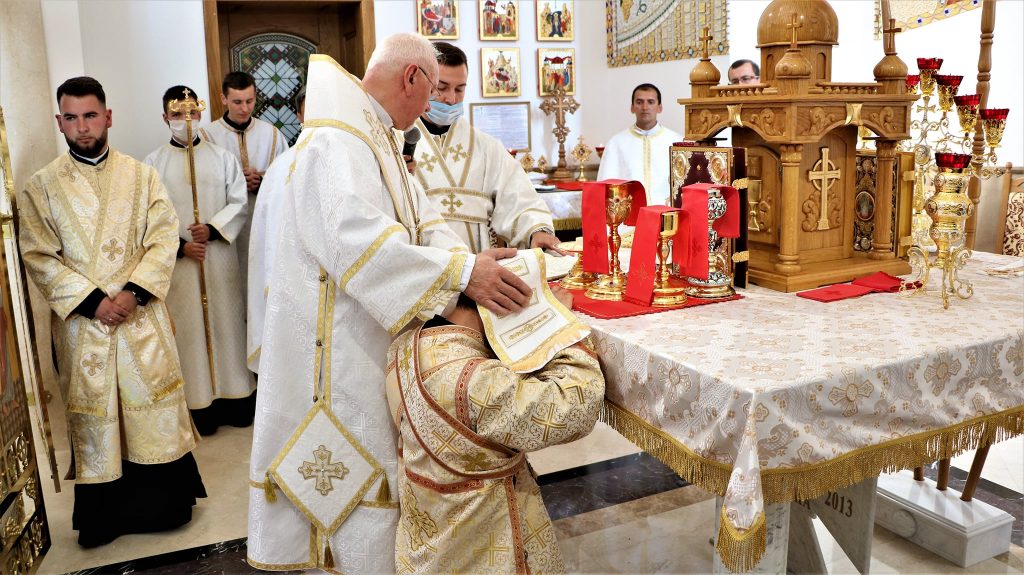
“One cannot breathe as a Christian, even less, as a Catholic, with only one lung; there must be two lungs, that is to say, the Eastern and the Western”
(St. John Paul II, June 8, 1980).

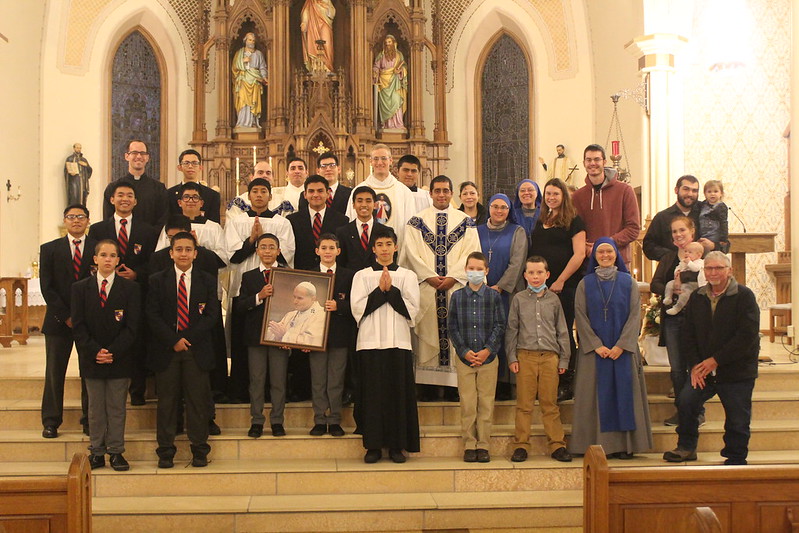
United by the same faith, the same ends, the same mission, the same founder, the same charism, and the same spirit, the religious of the IVE (priests, seminarians, monks, and co-adjutor brothers) and the SSVM, together with the IVE Third Order wish to form one family so as “to live and to make others live under the action of the Holy Spirit”. As St. Paul wrote, where the Spirit of the Lord is, there is freedom (2 Cor 3:17).
The Secular Third Order, or the lay order of the Religious Family of the Incarnate Word, is an association of lay faithful who, though living in the world, participate in the spirit of our Religious Family, in order to seek Christian perfection in a more secure and efficacious way. They do so in the wide sphere of the lay vocation and by carrying into effect the sanctification of all men by means of the works of apostolates that are associated both with the IVE and SSVM communities.
Our founder wanted our Institute to be named “of the Incarnate Word”, in order to honor the greatest event of history, an event which cannot be surpassed by any other: the Incarnation of the Son of God. By means of the profession of the vows of poverty, chastity and obedience, we want to imitate and follow more closely the Incarnate Word in his chastity, poverty and obedience.
In addition, we profess a fourth vow of Marian slavery, according to the spirit of St. Louis-Marie Grignion de Montfort. By means of this vow, we consecrate our whole lives to the Blessed Virgin Mary. As religious of the Incarnate Word, we want to be anchored in the mystery of the Incarnation which, as our spiritual father, St. John Paul II has said, “is the first and fundamental mystery of Jesus Christ.”
From this mystery, we want to undertake “to reestablish all things in Christ” (Eph 1:10), seeking to be as another Incarnation of the Word in order to make Him incarnate in all that is human. We are aware that, as St. Irenaeus teaches, “that which is not assumed is not redeemed”. Thus, nothing that is authentically human is foreign to us, because the life of grace that Jesus Christ came to bring to the world must be brought to everything and everyone.
This gives rise to our specific and singular end which is the evangelization of the culture, that is, to work “through the power of the Gospel, to transform: mankind’s criteria of judgment, determining values, points of interest, lines of thought, sources of inspiration, and models of life” ( Evangelii Nuntiandi, 19). Therefore, the charism of the Institute of the Incarnate Word is the grace to know how to work concretely so as to extend the presence of Christ in families, education, the mass media, the scholarly, and in all other legitimate manifestations of human life. “We believe that one of the most important ways to attain the Institute’s purpose is through work focused on key areas of culture, namely: families, education (especially in seminaries, universities, and colleges), the mass media, and thinkers or intellectuals” ( IVE Consitutions, 29).
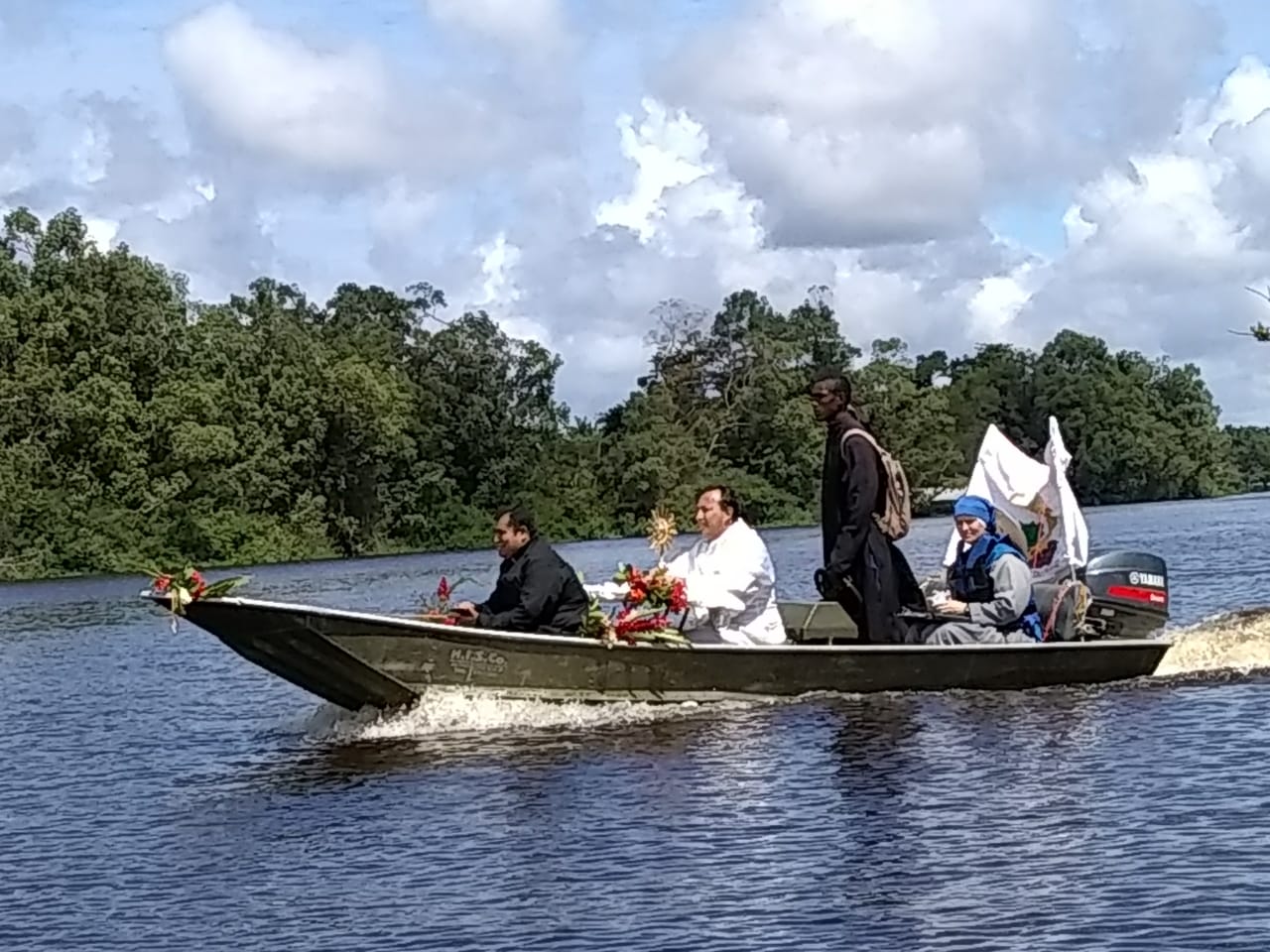
In order to always seek the greater glory of God and the universal good, we prefer to send missionaries where there is a greater need, either because of the lack of missionaries or because the faithful are in urgent need of them (cf. Constitutions, 186). Basically, we want to go to those missions where no one else wants to go. We firmly believe that the silent sacrifice of those who give their lives for Christ, going where no other man wishes to go, will never go unrewarded.
These sacrifices are an enormous source of blessing for the entire Institute and for the Universal Church. From this mystery, we want to undertake “to reestablish all things in Christ” (Eph 1:10), seeking to be as another Incarnation of the Word in order to make Him incarnate in all that is human. We are aware that, as St. Irenaeus teaches, “that which is not assumed is not redeemed”. Thus, nothing that is authentically human is foreign to us, because the life of grace that Jesus Christ came to bring to the world must be brought to everything and everyone.

“One cannot breathe as a Christian, even less, as a Catholic, with only one lung; there must be two lungs, that is to say, the Eastern and the Western”
(St. John Paul II, June 8, 1980).
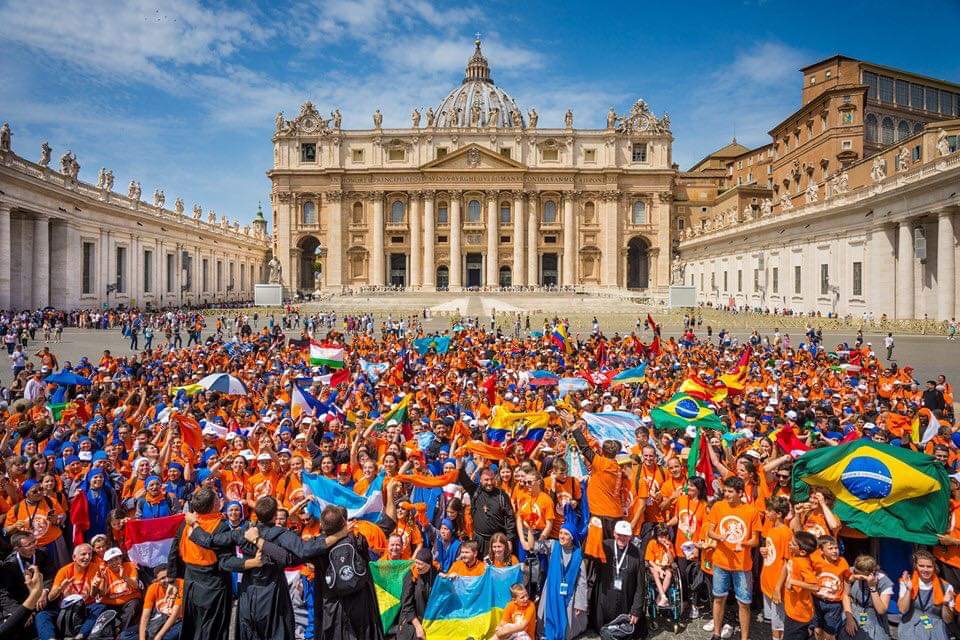
The Secular Third Order, or the lay order of the Religious Family of the Incarnate Word, is an association of lay faithful who, though living in the world, participate in the spirit of our Religious Family, in order to seek Christian perfection in a more secure and efficacious way. They do so in the wide sphere of the lay vocation and by carrying into effect the sanctification of all men by means of the works of apostolates that are associated both with the IVE and SSVM communities.
Share your prayer request with religious and friends of the IVE here. You can see other prayer requests by subscribing to Resound http://iveamerica.org/#prayerrequest